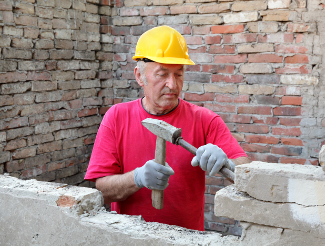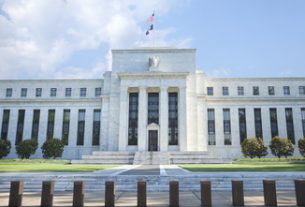One aspect of the post-financial crisis recovery that is of particular concern is that people’s attitudes towards their financial well-being seems not to have recovered. Many of the benefits of the recovery accrued to those most connected to the financial sector, those who received the benefit of government bailouts and Federal Reserve liquidity facilities. But for the average family on Main Street, prices kept getting higher while salaries seemed to stagnate.
More and more Americans are growing disillusioned about their future financial well-being. From students coming out of college with massive amounts of debt and wondering if they’ll ever be able to buy a house, to those in the workforce wondering if they’ll ever be able to retire, economic pessimism seems to be on the rise.
Nearly one-quarter of Americans now say they don’t expect to retire, with another quarter expecting not to retire until after age 65. That was in large part due to money issues, with nearly half of all American adults believing that they won’t be prepared to retire.
Those are discouraging figures, but giving in to despair is the easy way out. With a little bit of planning and hard work, retirement is well within the grasp of many Americans. Don’t let yourself be one of those who gives up and assumes that you’re not going to be able to retire.
Will You Be Able to Find Work?
The first assumption that many people make when they say that they don’t plan to retire is that they’re going to be able to continue working. While those in the 65+ age group have seen their employment figures rising in recent years, you can’t assume that every employer is going to want to or be able to keep someone on board that long.
Older workers cost more, both in terms of salaries and in terms of health insurance costs. If your company can do better with younger workers than with older, don’t be surprised to see yourself nudged out of the workplace. And if you plan to work part-time or do consulting after quitting your full-time job, you may also be disappointed at some of the options that are available to you in your advanced age.
Will You Be Healthy Enough to Work?
Aging also brings along with it health issues that may prevent you from working. Fighting cancer or diabetes, knee, back, and shoulder problems, or other health issues may make you more of a liability to an employer than an asset. While you may plan to work till you’re 75, if you fall victim to some unexpected health issues then your plans may have to go by the wayside.
Are You Prepared to Retire?
That means that you’ll have to be prepared to retire at any moment once you reach retirement age, no matter what your plans are. The last thing you want is to find yourself in a situation in which you’re not financially ready to retire but you’re thrown into retirement regardless because of situations that are out of your control.
A Pattern of Saving
Being prepared for retirement means getting into a pattern of saving early in your career. Only by saving well for decades can you start to get a handle on retirement. The earlier you start to save, the better. Many experts are now saying that you need to save at least 20 percent of your salary each year in order to be able to retire comfortably.
But even if you’re not able to start saving early, and if you get a late start to retirement planning, it’s not impossible for you to build up a nice nest egg. It might take a little extra saving, but it’s well within the reach of many people.
Saving requires discipline, and that means cutting out extraneous spending. It can be tempting to try to live in the moment and keep up with the Joneses, but every dollar you spend in the present takes away from the money you can spend in the future. A comfortable and secure retirement won’t happen overnight, and it won’t happen by magic. Ultimately your ability to retire is in your hands.
Good Investments
Along with good savings discipline comes the necessity to make good investments. Sticking money in a bank will result in negative real returns, as continuing inflation will mean that each dollar loses value each year.
Being able to make a good return on your investments will be necessary to build up your retirement savings. The past 20 years have seen difficult times for investors looking to get ahead, with the dotcom bubble and the financial crisis resulting in significant setbacks for most investors. Taking two steps forward and one step backward isn’t nearly as productive as taking two steps forward and none back.
Investors who invested in gold over the past 20 years have seen, in comparison to those who stuck to stocks, significantly better gains. In fact, gold is the second-best performing asset of the past 20 years, with nearly double the average annual gains as stock markets. Gold also protects investor assets during times of market declines, part of the reason for increased gold demand now that stock markets are teetering on the brink of yet another crash.
Whether or not you’re currently prepared for retirement, there’s no need to despair that you’ll never be able to retire. With hard work and discipline, anyone can make their dreams of retirement come true.
This article was originally posted on Goldco.





